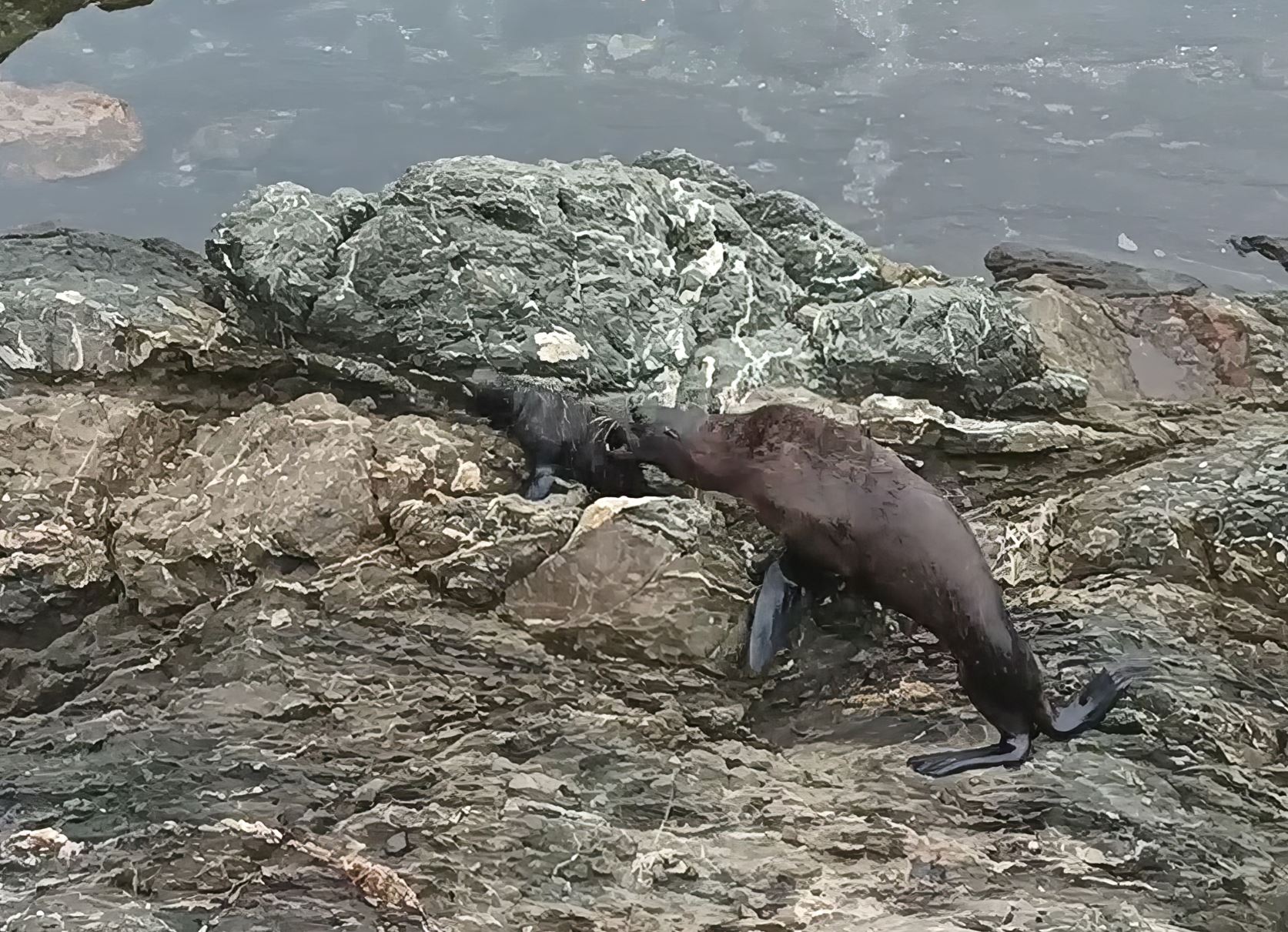
Juvenile male otariids may be jeopardizing Guadalupe fur seal recovery by abducting pups. What’s the link?
Abducting and sexually coercing pups are hypothesized to be a means for immature male otariids to learn how to secure, control, and mate with females—and increase their future reproductive success. However, the impact of unintentional pup deaths and the disruption of mother-pup bonds due to the behavior of juvenile and subadult males on population growth is unclear, especially for species such as Guadalupe fur seals (Arctocephalus townsendi), which are recovering from the catastrophic effects of sealing that occurred over a century ago. We observed juvenile and subadult male Guadalupe fur seals at the male-dominated San Benito Archipelago engaging in aggressive behaviors such as harassment, abduction, and attempted copulation with pups. These actions are presumed to benefit the fitness of individual subadult males, but can have severe consequences for the pups, including physical trauma, separation from their mothers, interrupted nursing, and even death. Such detrimental effects can hinder the recovery of the Guadalupe fur seal population, particularly at the San Benito Archipelago, where such behaviors are more prevalent compared to the breeding population on Guadalupe Island.
 Publication
Publication
2025 | ||||||||||||||
|

|

|
||||||||||||
Guillermo Vallarino-Orozco is a MSc candidate at the Centro Interdisciplinario de Ciencias Marinas in Baja California Sur, Mexico
